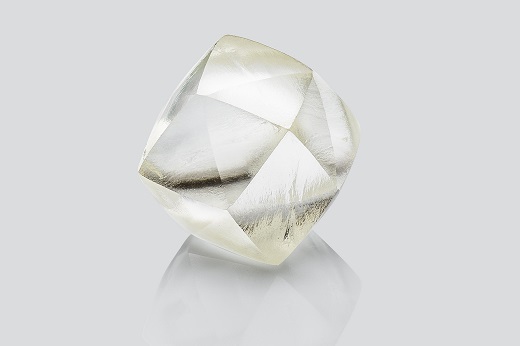Alrosa Expects October Recovery
 RAPAPORT... Alrosa has predicted a return to pre-pandemic rough sales levels in October, observing a promising combination of midstream shortages and growing retail demand. Executives made the forecast Friday following the release of the miner's second-quarter results, which showed a heavy slump in profit and revenue as the coronavirus froze the diamond market."There's real demand for rough being processed in the factories in India, even [though they're not] performing at maximum capacities," Alrosa CEO Sergey Ivanov told analysts during an earnings call, noting that cutters' inventories had "dried up."The miner previously expected a rebound in July, but changed this outlook after the worsening coronavirus situation curtailed the recovery in US retail demand, deputy CEO Evgeny Agureev added.Major retailers have now begun to place orders, albeit a month later than Alrosa had anticipated, Agureev added. US consumers will buy jewelry this holiday, though possibly to a lesser degree than a year earlier, the company continued, predicting a shift to lower price points."We hope that [the] midstream, based on the new contracts, will start to manufacture," Agureev said. "They will have [the] next couple of months...to support all these contracts, [which] means September and October. So we hope that in October we'll be able to switch to our normal level of sales." Profit slumpIvanov and Agureev were answering an analyst's question about when the company would reach its usual monthly sales quantities of around $200 million to $300 million. Rough-diamond sales have slumped during the pandemic, coming in at $13.1 million in April, $36.2 million in May, $24.8 million in June, and $22.7 million in July. As a result, profit nosedived 98% year on year to RUB 263 million (around $3.6 million) in the second quarter of 2020, while revenue slumped 84% to RUB 9 billion (approximately $123.5 million). In addition to rough and polished diamonds, Alrosa receives income from its energy, transportation and social-infrastructure businesses.The company allowed long-term contract customers to defer purchases during the three-month period, as manufacturers focused on depleting their inventories rather than buying more rough. The coronavirus also made it impossible for clients to attend overseas sales. Meanwhile, the miner - along with rival De Beers - chose to maintain price levels rather than flood the market with cheaper goods."Rational behavior and [a] price-over-volume approach allowed the industry to keep prices stable," Agureev elaborated. "Alrosa took a hit, allowing customers to postpone purchases and letting the industry destock, or avoid excessive stocking."Image: Rough diamond. (Alrosa)
RAPAPORT... Alrosa has predicted a return to pre-pandemic rough sales levels in October, observing a promising combination of midstream shortages and growing retail demand. Executives made the forecast Friday following the release of the miner's second-quarter results, which showed a heavy slump in profit and revenue as the coronavirus froze the diamond market."There's real demand for rough being processed in the factories in India, even [though they're not] performing at maximum capacities," Alrosa CEO Sergey Ivanov told analysts during an earnings call, noting that cutters' inventories had "dried up."The miner previously expected a rebound in July, but changed this outlook after the worsening coronavirus situation curtailed the recovery in US retail demand, deputy CEO Evgeny Agureev added.Major retailers have now begun to place orders, albeit a month later than Alrosa had anticipated, Agureev added. US consumers will buy jewelry this holiday, though possibly to a lesser degree than a year earlier, the company continued, predicting a shift to lower price points."We hope that [the] midstream, based on the new contracts, will start to manufacture," Agureev said. "They will have [the] next couple of months...to support all these contracts, [which] means September and October. So we hope that in October we'll be able to switch to our normal level of sales." Profit slumpIvanov and Agureev were answering an analyst's question about when the company would reach its usual monthly sales quantities of around $200 million to $300 million. Rough-diamond sales have slumped during the pandemic, coming in at $13.1 million in April, $36.2 million in May, $24.8 million in June, and $22.7 million in July. As a result, profit nosedived 98% year on year to RUB 263 million (around $3.6 million) in the second quarter of 2020, while revenue slumped 84% to RUB 9 billion (approximately $123.5 million). In addition to rough and polished diamonds, Alrosa receives income from its energy, transportation and social-infrastructure businesses.The company allowed long-term contract customers to defer purchases during the three-month period, as manufacturers focused on depleting their inventories rather than buying more rough. The coronavirus also made it impossible for clients to attend overseas sales. Meanwhile, the miner - along with rival De Beers - chose to maintain price levels rather than flood the market with cheaper goods."Rational behavior and [a] price-over-volume approach allowed the industry to keep prices stable," Agureev elaborated. "Alrosa took a hit, allowing customers to postpone purchases and letting the industry destock, or avoid excessive stocking."Image: Rough diamond. (Alrosa)